Gut feeling vs. smartwatch: Are daily form measurements useful?
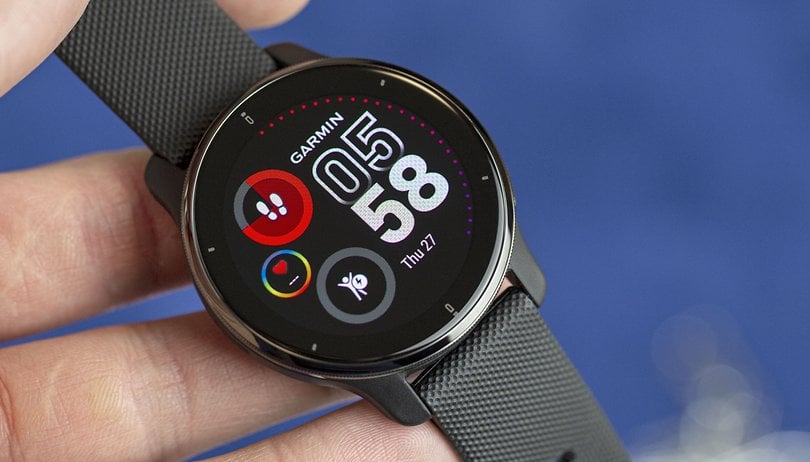

Read in other languages:
The smartwatches from Garmin and Fitbit tell you how fit you are with the help of Body Battery or the Daily Form Index. And there are also third-party apps with a similar feature for the Apple Watch. But is it a good idea to listen to their recommendations?
Whether it's the red wine, the night shift, or leg day to blame, our daily form isn't always perfect. Ideally, we sense this and can assess for ourselves whether we should go full throttle again the next day or rather take it easy. Garmin, Fitbit & Co. now want to quantify this daily fitness and condense various measured values into one metric.
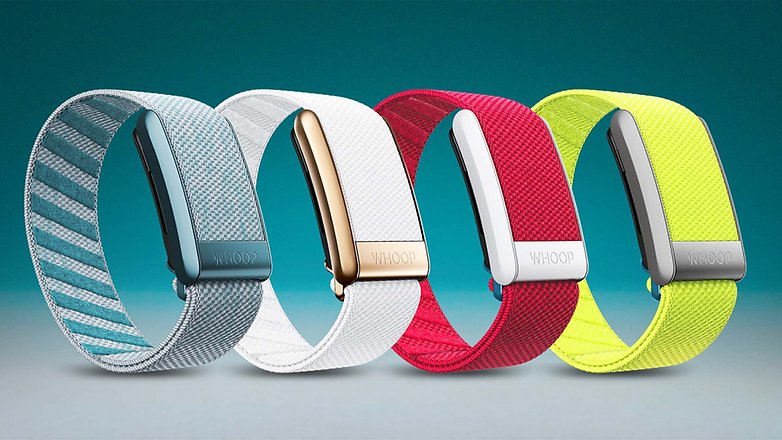
At Fitbit, premium users who pay monthly have been able to access the Daily Readiness Score since the end of 2021. Here, the manufacturer condenses sleep quality, activity level and heart rate variability into a score. In our review of the Fitbit Sense, the influence of activity was especially noticeable here. A few hard workouts quickly brought the Daily Readiness Score down.
- Also interesting: Fitbit Sense vs. Versa 3: Is it worth the extra money?
- Also interesting: Garmin Venu 2 Plus review: Primarily a sports watch
Garmin calculates a very similar value and calls it Body Battery. Sleep, activity and heart rate activity also play an important role here. Added to this is the stress level, which Garmin distills from your heart rate and heart rate variability. While Fitbit gives a starting value for each day, Garmin always shows a snapshot. You can then see, for example, whether you'd rather hit the gym or the couch at the end of a strenuous day.
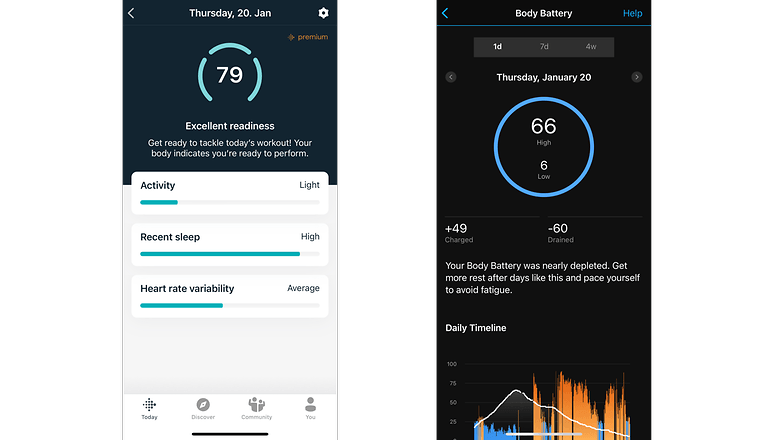
But the question is: Can a watch really tell me how fit I am - and doesn't that carry certain risks? Garmin, for example, writes itself on its website:
Garmin watches are not approved medical devices and are not designed to diagnose or treat any disease or condition. Always seek professional advice if you are concerned about your health.
And this is the most important thing: If you feel bad and your smartwatch gives you a supposed "go," always listen to your body. Don't run a half marathon if you're just coughing your lungs out at full-body battery and maximum readiness score. But that should be clear anyway.
I also find Ben's interjection at this point exciting: If we can create such detailed training plans via the Garmin Connect app, for example, why can't the training load be controlled via the fitness determined at the time of training? Especially with repetitive training routines, trackers should be able to compare the load of the same exercise - and even give recommendations: Add some extra weight, this deadlift just didn't strain you that much.
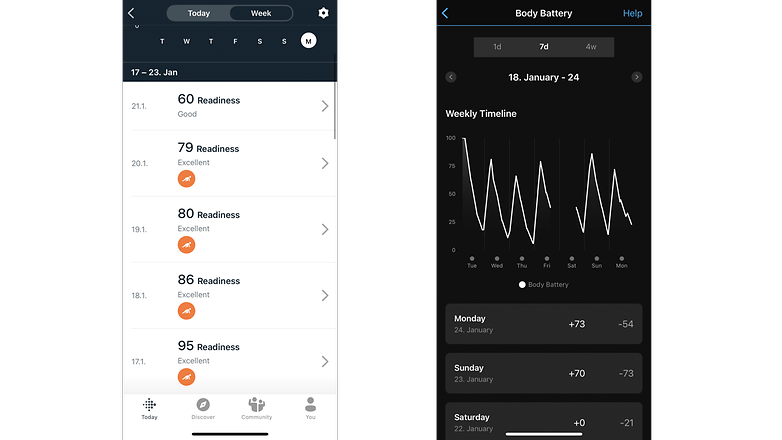
However, this is exactly where the risks for manufacturers are high. Fitbit alone was sued several times. The accusations were, for example, inaccurate heart rate measurement or faulty sleep data. The more concretely the watches make recommendations for "optimized" behavior, the greater the risk.
On the other hand, however, there is an interesting aspect: The vital parameters measured by smartwatches conceal things that we cannot feel. An increase in resting pulse and heart rate variability, for example, can indicate an infection that is not yet triggering any symptoms. A day of rest at the right time can significantly shorten the duration of illness in this case.
Of course, you can spin this any way you want, especially with the experience of the past few years in our bones. If there is a risk of illness, the tracker could also warn people not to visit their grandmother, or people you recently met could have a few percentage points added to whatever daily illness risk score and be warned more quickly in the event of unfavorable vital signs detected via their own trackers.
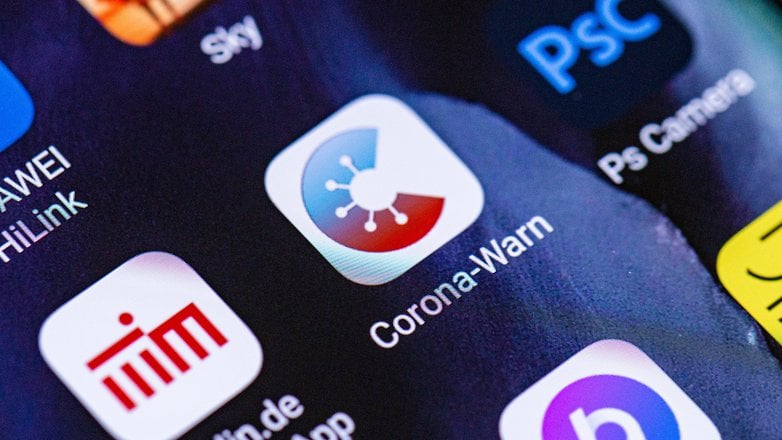
At IFA a few years ago, Fitbit's CEO described his vision for fitness trackers as a "safety belt for the future" - in a few years, it could be almost crazy to live without one. Just as hardly anyone drives a car without a seatbelt these days. The possibilities are huge, from infections and pandemics to early heart disease and diabetes detection.






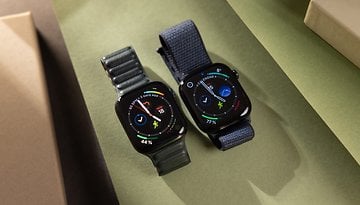
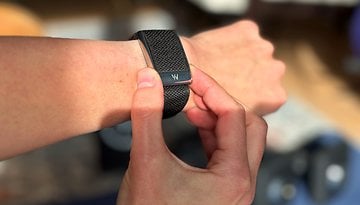
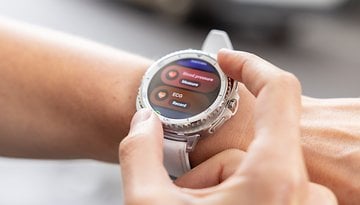
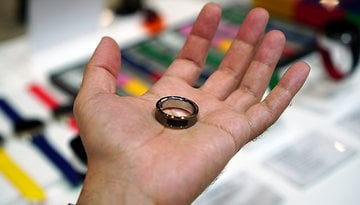
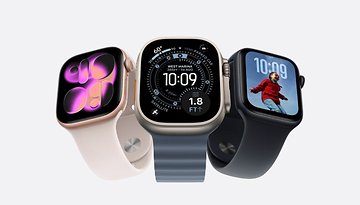

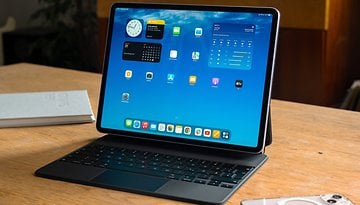
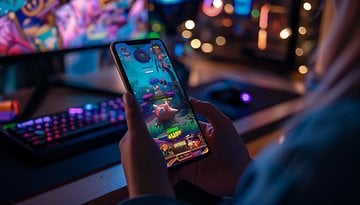
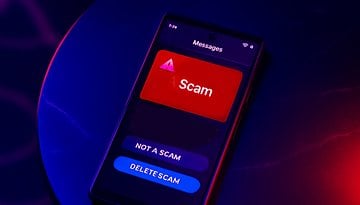
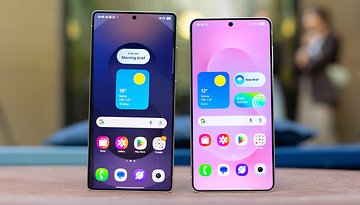

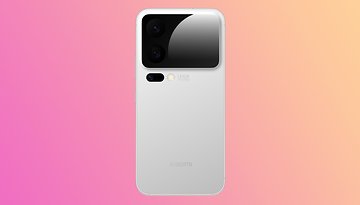


Daily measurements are rarely right for me